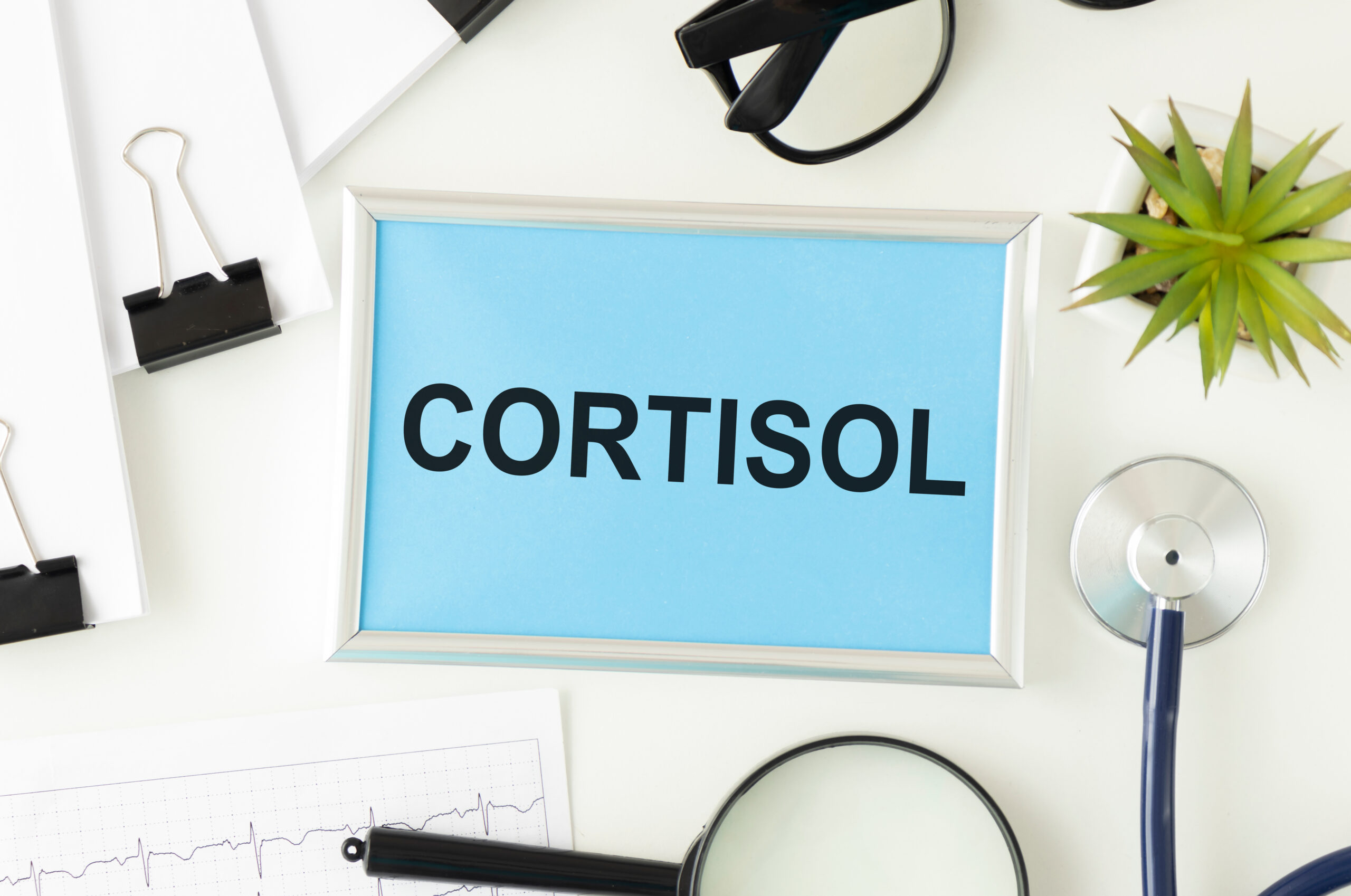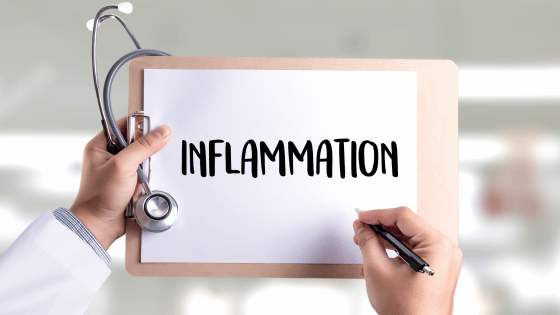Introduction
Did you know that chronic stress can lead to a host of health issues, from weight gain to high blood pressure and even mental health disorders? The culprit behind these effects is often a hormone called cortisol, which plays a crucial role in how our bodies respond to stress. In this blog, we will delve into what cortisol is, its role in the body, how it affects our health, and share some tips on managing cortisol levels effectively.
What is Cortisol?
Cortisol is a hormone produced by the adrenal glands, which are located on top of each kidney. Often referred to as the “stress hormone,” cortisol is vital for various bodily functions. Its primary roles include regulating metabolism, reducing inflammation, and controlling the sleep-wake cycle.
- Regulating Metabolism: Cortisol helps regulate how the body converts proteins, carbohydrates, and fats into energy. It ensures that the body has enough energy to handle stress and maintain essential functions.
- Reducing Inflammation: Cortisol acts as an anti-inflammatory agent, helping to control the immune system’s response and reduce inflammation. This is why corticosteroid medications, which mimic cortisol, are often prescribed to treat inflammatory conditions.
- Controlling the Sleep-Wake Cycle: Cortisol levels fluctuate throughout the day, peaking in the morning to help wake you up and gradually declining in the evening to promote sleep. This cycle is crucial for maintaining a healthy sleep-wake rhythm.
When you encounter a stressful situation, your body’s hypothalamic-pituitary-adrenal (HPA) axis is activated. The hypothalamus in your brain sends a signal to the pituitary gland, which then signals the adrenal glands to release cortisol into the bloodstream. This surge of cortisol helps prepare the body to deal with the stressor by increasing energy availability, enhancing the brain’s use of glucose, and suppressing non-essential functions like digestion and reproduction. This process is essential for immediate survival, but when stress becomes chronic, the continuous release of cortisol can have detrimental effects on health.
In the next sections, we will explore these effects in more detail, discuss the signs of high cortisol levels, and provide practical tips for managing and reducing cortisol to maintain overall well-being.
The Role of Cortisol in the Body
Stress Response
Cortisol plays a crucial role in the body’s response to stress. When faced with a stressful situation, the hypothalamus triggers the adrenal glands to release cortisol into the bloodstream. This hormone helps the body cope by:
- Increasing Energy Availability: Cortisol ensures that sufficient glucose is available by breaking down glycogen stores in the liver. This immediate energy boost is vital for handling stress.
- Enhancing Brain Function: Cortisol facilitates the brain’s use of glucose, providing the necessary energy for heightened alertness and cognitive function. This enhances your ability to think and respond quickly in stressful situations.
- Suppressing Non-Essential Functions: During stress, cortisol suppresses non-essential functions like digestion, immune responses, and reproductive processes. This allows the body to focus all its resources on managing the immediate threat.
Normal vs. Chronic Stress
The body’s response to acute stress (short-term) and chronic stress (long-term) differs significantly.
- Acute Stress: This is a temporary response to an immediate threat. Once the threat passes, cortisol levels return to normal, and the body resumes regular functions.
- Chronic Stress: When stress becomes persistent, cortisol levels remain elevated for extended periods. This continuous exposure can lead to a range of health problems, as the body does not have a chance to recover and reset.
Cortisol and the Circadian Rhythm
Cortisol levels naturally fluctuate throughout the day, aligning with the body’s circadian rhythm.
- Morning Peak: Cortisol levels peak in the early morning, around 8 a.m., helping you wake up and start the day with energy.
- Evening Decline: Levels gradually decrease throughout the day, reaching their lowest point in the evening, which helps facilitate relaxation and sleep. Disruptions to this natural rhythm, such as irregular sleep patterns or chronic stress, can negatively impact overall health.
Health Implications of High Cortisol Levels
Short-term Effects
In the short term, elevated cortisol levels can lead to:
- Increased Alertness and Energy: Cortisol boosts alertness and energy, helping you respond to immediate stressors effectively.
Long-term Effects
Prolonged high cortisol levels can have detrimental effects on health, including:
- Weight Gain: Particularly in the abdominal area, as cortisol promotes fat storage and increases appetite.
- High Blood Pressure: Chronic high cortisol can cause hypertension by retaining sodium and constricting blood vessels.
- Sleep Disturbances: Persistent elevated cortisol can interfere with the natural sleep-wake cycle, leading to insomnia and poor sleep quality.
- Reduced Immune Function: Cortisol suppresses the immune system, making the body more susceptible to infections and illnesses.
- Increased Risk of Chronic Diseases: Long-term elevated cortisol levels are linked to a higher risk of conditions such as diabetes and heart disease.
Mental Health
High cortisol levels can significantly impact mental health, leading to:
- Anxiety: Continuous high cortisol can increase feelings of anxiety and unease.
- Depression: Prolonged stress and elevated cortisol are associated with depression and mood disorders.
- Cognitive Impairment: Chronic high cortisol can impair cognitive functions, including memory and concentration.
Understanding the role and impact of cortisol in the body is essential for managing stress and maintaining overall health. In the next sections, we will discuss signs of high cortisol levels and provide practical tips for managing and reducing cortisol to support well-being.
Signs of High Cortisol Levels
Recognizing the signs of high cortisol levels can help you take proactive steps to manage stress and maintain your health. Here are some common physical, psychological, and behavioral symptoms associated with elevated cortisol levels.
Physical Symptoms
- Weight Gain: Especially around the abdomen, as cortisol promotes fat storage in this area.
- High Blood Pressure: Persistent high cortisol can lead to hypertension by causing the body to retain sodium and constrict blood vessels.
- Frequent Infections: A weakened immune system, due to continuous cortisol suppression, can make you more susceptible to infections and illnesses.
- Muscle Weakness: Elevated cortisol can lead to muscle wasting and weakness.
- Skin Changes: High cortisol levels can cause thinning skin, easy bruising, and slow wound healing.
Psychological Symptoms
- Anxiety: Chronic high cortisol is often linked to increased feelings of anxiety and nervousness.
- Depression: Long-term exposure to high cortisol levels can contribute to mood disorders, including depression.
- Memory Problems: Elevated cortisol can impair cognitive functions, particularly affecting memory and learning capabilities.
- Irritability: High stress levels can lead to irritability and mood swings.
Behavioral Symptoms
- Sleep Disturbances: High cortisol levels can disrupt the natural sleep-wake cycle, leading to insomnia or poor sleep quality.
- Changes in Appetite: Elevated cortisol can increase appetite, particularly cravings for high-calorie, sugary foods, leading to overeating and weight gain.
- Decreased Libido: Chronic stress and high cortisol can reduce interest in sexual activity.
- Increased Consumption of Alcohol or Caffeine: Some people may turn to substances like alcohol or caffeine to cope with stress, which can further exacerbate the problem.
Recognizing these signs can help you identify when your cortisol levels might be too high. In the next section, we will explore practical strategies for managing and reducing cortisol to improve your overall well-being.
Managing and Reducing Cortisol Levels
Effectively managing and reducing cortisol levels is crucial for maintaining overall health and well-being. Here are some actionable tips and strategies that can help:
Lifestyle Changes
- Regular Physical Exercise: Engaging in regular physical activity, such as walking, running, or strength training, can help lower cortisol levels. Exercise promotes the release of endorphins, which can reduce stress and improve mood.
- Healthy Diet and Proper Nutrition: Eating a balanced diet rich in fruits, vegetables, lean proteins, and whole grains can support overall health and help regulate cortisol levels. Avoiding excessive caffeine and sugar can also be beneficial.
- Adequate Sleep and Good Sleep Hygiene: Ensuring you get enough restful sleep is essential for managing cortisol. Aim for 7-9 hours of sleep per night and practice good sleep hygiene by maintaining a regular sleep schedule, creating a relaxing bedtime routine, and keeping your sleep environment comfortable and free of distractions.
- Mindfulness and Relaxation Techniques: Practicing mindfulness and relaxation techniques, such as meditation, deep breathing exercises, and yoga, can help reduce stress and lower cortisol levels. These practices promote a state of calm and relaxation, counteracting the effects of stress.
- Social Support and Healthy Relationships: Building and maintaining strong social connections can provide emotional support and help buffer against stress. Spend time with friends and family, engage in social activities, and seek out positive relationships.
Professional Help
If lifestyle changes alone are not sufficient to manage stress and cortisol levels, seeking professional help is a valuable option. Consider therapy or counseling with a mental health professional who can provide support, guidance, and coping strategies. Cognitive-behavioral therapy (CBT) and stress management programs can be particularly effective in managing chronic stress.
Natural Supplements
Certain natural supplements may help regulate cortisol levels. Some of the commonly recommended supplements include:
- Ashwagandha: An adaptogenic herb that has been shown to reduce stress and lower cortisol levels.
- Rhodiola Rosea: Another adaptogen that can help the body adapt to stress and reduce cortisol.
- Omega-3 Fatty Acids: Found in fish oil, omega-3s can help reduce inflammation and stress.
- Phosphatidylserine: A compound that may help lower cortisol levels and improve mood.
It’s important to consult with a healthcare provider before starting any new supplement regimen to ensure it is safe and appropriate for your individual health needs.
By incorporating these strategies into your daily routine, you can effectively manage and reduce cortisol levels, improving your overall health and well-being. Taking proactive steps to manage stress can lead to a healthier, more balanced life.
Conclusion
Understanding cortisol, the body’s primary stress hormone, is essential for recognizing how our bodies respond to stress and how it affects our health. Elevated cortisol levels, particularly over long periods, can lead to significant physical, psychological, and behavioral issues. By being aware of the signs of high cortisol and implementing strategies to manage it, you can take proactive steps toward maintaining your overall well-being. Remember, managing stress effectively is not just about immediate relief but also about long-term health and quality of life.
Call to Action
Ready to conquer stress and embrace a more relaxed lifestyle? Introducing the HEALCoach STRESS Protocol – your practical guide to managing stress like a pro. So, what exactly is a stress protocol? It’s like your personal stress-busting playbook, filled with effective strategies and practical tips to help you navigate life’s pressures with ease.
WITH THE HEALCOACH STRESS PROTOCOL, YOU WILL RECEIVE:
- A HEALthier Life STRESS Quiz – A 21-question quiz to help you understand and analyze your health patterns with suggestions based on your results.
- A HEALthier Life STRESS Protocol – Includes day and nighttime routine ideas, and food & lifestyle recommendations.
- STRESS Management Support, Resources & Guides – Diet, lifestyle and self-care support tools, resources & how-to guides to help you create a lifestyle that promotes a healthy body.
- STRESS Labs & Supplement Education – Lab and supplements suggestions to discuss with your doctor that includes the purpose of the labs PLUS discounts on herbs and supplements that you can order online and have shipped directly to you.
Take the first step towards a stress-free life today. Explore the HEALCoach STRESS Protocol and discover how you can transform your stress management approach and enhance your overall well-being. Join us and start your journey to a healthier, happier you!
If you are looking for more tips and support, join me over on my group page, The Village – A Natural HEALing Community, to get tons of information and tips to help you take your HEALTHY EATING and ACTIVE LIVING to the next level.
REFERENCES:
- Smith, S. M., & Vale, W. W. (2006). The role of the hypothalamic-pituitary-adrenal axis in neuroendocrine responses to stress. Dialogues in Clinical Neuroscience, 8(4), 383-395.
- Sapolsky, R. M. (2004). Why Zebras Don’t Get Ulcers: The Acclaimed Guide to Stress, Stress-Related Diseases, and Coping. Henry Holt and Company
- McEwen, B. S. (2007). Physiology and neurobiology of stress and adaptation: Central role of the brain. Physiological Reviews, 87(3), 873-904.
- Stalder, T., & Kirschbaum, C. (2012). Analysis of cortisol in hair–State of the art and future directions. Brain, Behavior, and Immunity, 26(7), 1019-1029.
- Chrousos, G. P. (2009). Stress and disorders of the stress system. Nature Reviews Endocrinology, 5(7), 374-381.
MORE RELATED POSTS:













+leave a comment . . .